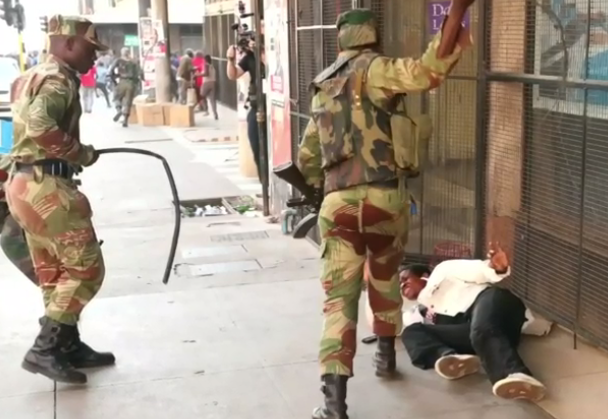Today the ICJ issued a Legal Brief note in order to help in understanding the offence of Subverting a Constitutional Government under Zimbabwe law.
Following protests that occurred in most major cities and towns in Zimbabwe in January 2019, a number of activists, human rights defenders, civil society leaders and opposition leaders have been arrested and charged with ‘subverting constitutional government’ as provided for under section 22 of the Criminal Law (Codification and Reform) Act [Chapter 9:23] (hereinafter referred to as the Criminal Code).
This legal briefing note seeks to provide an explanation of the elements of the crime and how it has been construed by Zimbabwean courts, and whether and to what the resort to section 22 has accorded with international law and standards, including African regional standards.
Under Zimbabwe’s existing laws, a person may be charged with an offence known as ‘subverting constitutional government’.
This is a crime akin to but less serious than treason. It is nonetheless an offence which attracts a sentence of up to 20 years in prison.
Various protesters have been arrested on the allegations that their public statements amounted to inciting the commission of this crime.
Following the January 2019 protests, more than 5 protesters and MDC opposition members have been charged with this crime.
Despite the high number of arrests based on this charge in the past few years, there have been no convictions.
Where the basis of the charge are public statements made, the question of what exceeds legitimate exercise of the right to freedom of expression arises.
As such, there is need to interrogate where the line is drawn between legitimate and illegitimate exercise of the right to freedom of expression.
International human rights law, pursuant both universal and African regional standards, protects for the rights of persons to freedom of opinion and expression (Article 9 ACHPR; article 19 ICCPR), freedom of assembly (article 11 ACHPR;21 ICCPR) article, freedom of association (article 10 ACHPR; article 22 ICCPR), and the right to political participation (article 25 ICCPR).
These provisions in these international instruments impose an obligation on all state parties to respect the rights of persons under their jurisdiction.
Zimbabwe as a member state is bound by these provisions and similar provision under sections 58 (freedom of assembly and association), section 59 (freedom to demonstrate and petition), section 60 (freedom of conscience) and section 61 (freedom of expression).
These rights and fundamental freedoms, when exercised by human rights defenders, have been accorded heightened protection in international standards in particular through the UN Declaration on the Right and Responsibility of Individuals, Groups and Organs of Society to Promote and Protect Universally Recognized Human Rights and Fundamental Freedoms (Declaration on Human Rights Defenders), adopted in 1999 by consensus of the General Assembly
While these freedoms are not absolute, under international law, any restrictions must be (i) legitimate, provided by law which is clear and accessible to everyone and formulated with sufficient precision to enable an individual to regulate his or her conduct; (ii) proven strictly necessary to protect the rights or reputation of others, national security or public order, public health or morals and (iii) proven to be the least restrictive and proportionate means to achieve the purported aim.
Contact
Elizabeth Mangenje, e: elizabeth.mangenje@icj.org
Brian Penduka, e: brian.penduka@icj.org
Arnold Tsunga, e: arnold.tsunga@icj.org
Zimbabwe-Subverting Constitutional Gvt-Advocacy-Analysis Brief-2019-ENG (full legal brief in PDF)

